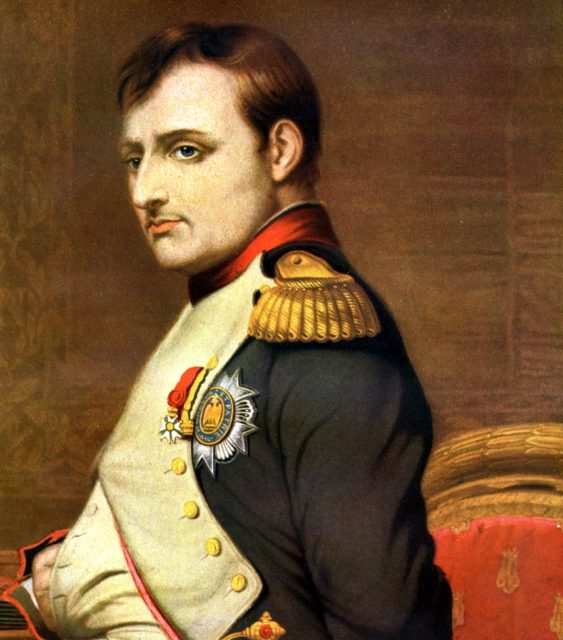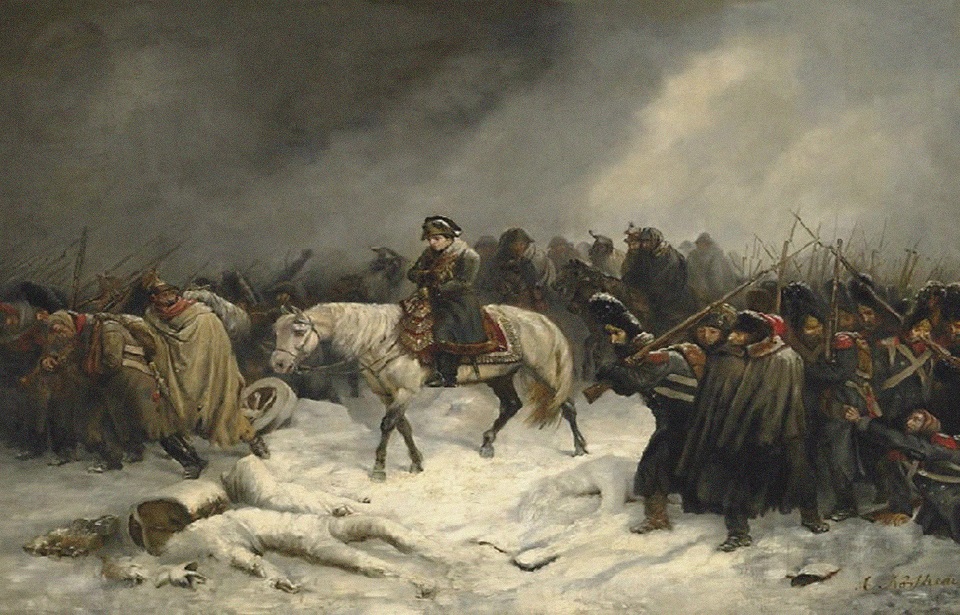October of 1812 saw a major turning point in Napoleon’s invasion of Russia. Although the French had recently claimed victory at the Battle of Maloyaroslavets, the exhausted army was now on the retreat. From Napoleon’s force of over half a million, just 10,000 made it out of Russia alive.
Historians have been confused by this military blunder ever since, but in more recent years a new theory has been put forward that may, at least in part, explain the catastrophe. Let’s take a look at the theory and what experts have to say about the situation.
The Napoleon Tin Button Theory

This theory explains that one of the sources of Napoleon’s woes was in the buttons of his soldiers’ uniforms. At the time the French often used tin buttons on their uniforms, but they weren’t aware back then that tin can come in many different allotropes, some of which are unable to properly deal with extremely low temperatures.
An allotrope is a different form of an element in the same state. For example, diamonds, coal, and graphite are all allotropes of carbon. Each of these is made up of carbon atoms, but the atoms are arranged differently from one another, creating materials with different properties.
Similarly, tin has a number of allotropes, and this could have been a big problem for Napoleon’s troops. Tin’s two primary allotropes are alpha-tin and beta-tin. Alpha-tin is a brittle, powdery, dull-gray material that has little use for anything.
Meanwhile, beta-tin is a bright silver metallic material that is malleable and can be easily shaped. However, if beta-tin is exposed to temperatures below 13°C for extended periods of time, it degrades into alpha-tin and quite literally turns to dust. This is known as “tin pest.”
The French used beta-tin as it can be hammered into shape to produce neat, shiny buttons for their uniforms, but they were likely unaware that it can spontaneously transform to alpha-tin in low temperatures. Under normal circumstances, the tin buttons would have held up just fine, but when it was exposed to the extremely cold Russian winter (which reached as low as -40°C) for long periods of time, tin pest may have damaged the metal.
As the tin buttons turned to dust the French troops would have been unable to keep their coats sealed, and therefore would have been vulnerable to the brutal temperatures seen during the winter.
Napoleon’s army had also been ravaged by disease, starvation, desertion, and death at the time of their retreat, so it’s not like the unsuitable buttons were solely to blame.
But Is It An Urban Legend?
While this could be a large factor in Napoleon’s retreat, many have put the idea down as an urban legend. There are a few issues with the seemingly logical problem of degrading buttons. First, many armies at this time used bone or wood buttons as it was much cheaper. Although Napoleon’s army certainly did in part use tin buttons, it is unlikely that they were commonplace.
The next problem relates to the tin pest itself. It affects pure-tin the most and can be avoided by mixing it with other elements such as lead. The tin used by France would have been quite impure, so it would have unintentionally been more resistant to the cold.
Laboratory tests revealed that unalloyed tin needed to be in low temperatures for about 18 months to develop significant tin pest damage, which is more than twice the length of the invasion. Although the temperatures the troops experienced in Russia were much, much lower, which would have accelerated tin pest.
Lastly, soldiers’ accounts from the ordeal do not mention such shocking problems with their buttons.
For now, the jury is still out on what part tin buttons played in Napoleon’s losses in Russia. What we know for certain is that historians are still puzzled by Napoleon’s losses in Russia.
